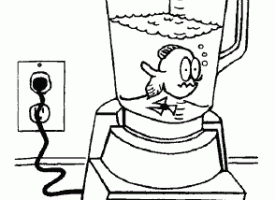The Effects of Modern Day Stress and What You Can Do About It Part 2

Last week I encouraged you to become Aware of your signs, symptoms and responses to stress overload. This week we are going to expand your awareness of these signs and symptoms.
Causes of stress
The external situations and pressures that cause stress are known as stressors. We usually think of stressors as being negative, such as an exhausting work routine. The truth is, anything that puts a high demands on you or forces you to adjust can be stressful. This includes positive events such as getting married or receiving a promotion.
Not all stress is caused by external factors. Stress can also be internally generated. For example, you may worry excessively about something that may or may not happen
The internal causes of stress, are your unique beliefs and conditioned ideas about what is happening externally.
Remember that something that is stressful to you may not upset someone else. For example, your morning commute to work may create anxiety of being late for you, whilst it may be a source of relaxation for another, as they sing along to the radio. This is due to your differing belief systems.
Common external causes of stress
- Major life changes
- Financial problems
- Relationship difficulties
- Work or University
- Family and Children
- Busyness
Common internal causes of stress
- Negative self-talk
- Chronic worry
- Unrealistic expectations
- Perfectionism
- Pessimism
- Black and white thinking
Next comes your natural stress response! Which of the below do you feel?
- Heart pounds faster
- Muscles tighten
- Blood pressure rises
- Breath quickens
- Senses become sharper
- Increased strength and stamina
- React quicker
- Enhanced focus
- Ready for fight, flight or freeze
Remember that these are just body sensations and nothing more.
So! How much stress is too much!
Beyond a certain point, stress stops being helpful and starts causing major damage to your health, your mood, your productivity, your relationships, and your quality of life.
Below are common warning signs and symptoms of stress overload.
Cognitive Symptoms
- Memory problems
- Poor concentration
- Poor judgment
- Pessimism
- Chronic worrying
Emotional Symptoms
- Moodiness and Irritability
- Agitation or inability to relax
- Feeling overwhelmed
- Feeling lonely and isolated
- Depression or sadness
Physical Symptoms
- Aches and pains
- Diarrhea or constipation
- Nausea or dizziness
- Chest pain or rapid heartbeat
- Loss of sex drive
- Frequent illness
Behavioral Symptoms
- Over or under eating
- Sleeping excessively or little
- Isolating yourself from others
- Procrastination
- Substance abuse
- Nervous habits such as nail biting
You are now becoming more aware of the natural stress response and the signs of how much stress is too much for you.
I would like you to be aware of the physical sensations and ask yourself?
- What situation or pressure was present?
- What can’t I accept about this situation? And why?
- Try your hardest to set one small goal and change your habitual reaction




